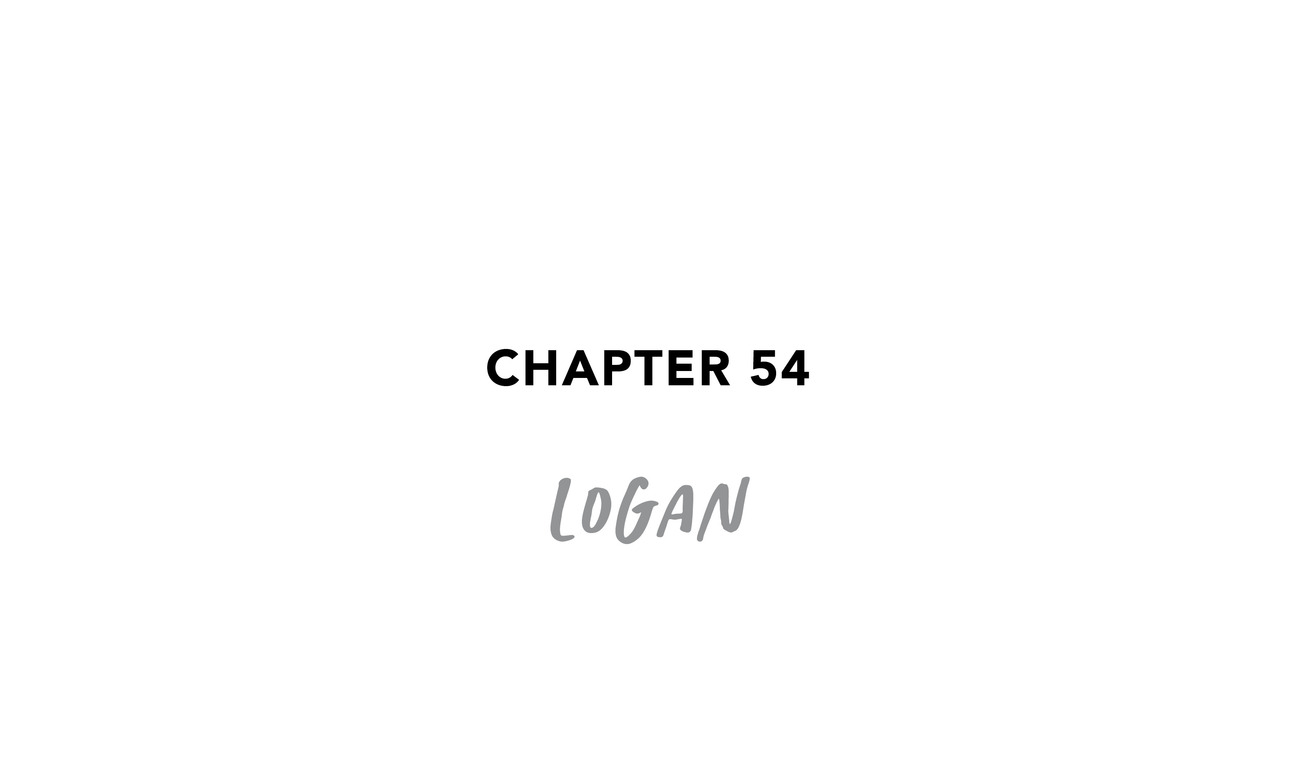CADE: Can I come over?
ME: Of course.
CADE: I’m outside your side door.
I drop my phone on my bed, run down our back stairs into the kitchen, then into the entryway, and fling open the door. The motion sensor light shines on Cade. He lifts his head, and I get the biggest shock of my life. He looks absolutely wrecked.
“What happened?”
He takes one step, reaches for me, and buries his face in my neck. “Nana,” he chokes out. His hands come around my back and clasp onto my shoulders. He’s shaking. I brace us against the doorframe to hold us both up. Something unthinkable has happened to Nana. Tears pool in my eyes. I can’t form words to ask the question that might lead to the answer I fear the most.
I tighten my grip around Cade’s waist. His warm tears drip into my Georgetown sleep shirt. My skin cools in the bitter cold wind. Goose bumps rise over my arms and legs, and the freezing cement numbs the bottom of my feet. But I hold on, hold on and try to imagine how we’ll live without Nana.
He takes several deep breaths and pulls away. “I’m sorry.”
“W-what happened to Nana?”
“She’s okay. Or as okay as she can be under the circumstances.” He pauses. “I’m sorry. I shouldn’t have scared you like that. I just—I had to get away.”
I nod as if I understand, but I don’t. In the kitchen, Cade takes off his coat and drapes it over a chair.
“I’m confused. Did something else happen?”
Cade leans against the kitchen counter. He struggles to speak. “Where’s your laptop?”
“Upstairs.”
He motions with his head to the stairwell, and I lead the way to my bedroom.
Kicking off his shoes, he flops onto the pillows I have propped up against my bed’s headboard. “Look up Gross-Rosen concentration camp,” he says, then closes his eyes. “Read about it, then tell me when you’re done.”
Sitting at my desk, I open my laptop. Wikipedia’s site pops up first. I click on it, read about the tens of thousands of people the Nazis tortured as slave laborers to mine the granite quarries and to build 102 prisoner sub-camps. From the summer of 1940 until the Red Army liberated them on February 14, 1945, some 125,000 people passed through Gross-Rosen and the other camps—40,000 were murdered. I go to the official Gross-Rosen Concentration Camp Museum website. It’s located in Rogoźnica, Poland. On the left side, there are tabs. One of them is labeled “Database of the Dead.” I’ve seen enough. I need to know what this is about.
“Okay?” My voice is barely a whisper.
“Nana was there.”
“What?”
“And that story I told you about my grandpa saving a Jewish boy?”
I nod. “Uh-huh?”
“My grandpa didn’t save the Jewish boy. He was the Jewish boy.”
“Oh my God!” My hands fly up to my mouth.
Cade struggles not to cry again.
“Oh, Cade.” I get to my feet, but he stops me by holding up his hand. I sit back down at my desk and wait.
Several minutes pass before Cade is able to speak again. Then he tells me the rest of his grandpa’s story, the parts he didn’t know until Nana told him. “Every single member of my grandparents’ families was murdered,” he says. “They’re Jewish.” He rakes his fingers through his hair, then scrubs his face. “We’re—” He cuts himself off. “I don’t know what we are.”
He stares down at his palms, flexes his fingers. “I don’t know who I am.”
My heart breaks for him and it takes all my willpower not to cry. He doesn’t need my tears. “You’re Cade. This doesn’t have to change anything. You always knew there was something about your grandparents’ past, right? Now you know.”
His eyes darken, fill with misery. “There is so much I don’t know! And it could have been me! Me, Logan.” He slaps his palm against his chest. “They would have killed me. Those evil, filthy excuses for human beings killed my family! Murdered for what? Do I look any different than I did yesterday or the day before or a month before?”
“Not at all.”
He covers his eyes with his arm. “I’m Jewish, Logan. What makes me Jewish?”
I get up, sit at the bottom of the bed. “There’s a rabbi at SUNY-Lakeside my dad knows. We could get in touch with him?”
He pushes himself up onto his elbows. “I don’t want to talk to a rabbi. I—I can’t. Maybe someday.” He scoots off my bed, checks his phone. “I gotta go. My parents and Nana were sleeping when I left. But if they wake up—I took the car and didn’t leave a note.”
“Call me when you get home.”
“Sure.”
I walk him to the car, then watch him drive away.
I climb into bed and finally allow myself to cry for Cade, for his family, for me. I replay what’s transpired over the past week, the misery and pain this assignment has caused. I want to put it all on Mr. Bartley. It belongs on Mr. Bartley, but as I stare up at my ceiling, Mr. Lane’s words haunt me. There were so many other ways you could have handled this.
Were there?
I seriously consider it. The answer is no.
So many nights I’ve lain awake, worrying about Mr. Bartley, how this has impacted him. Enough! On the surface, I raged that Mr. Lane blamed Cade and me, but inside? I bought into his blame and piled it onto my back like a packhorse. He’s the one who behaved outrageously. I’m done making excuses for him.
My phone buzzes. Cade doesn’t call. He texts: “Home.”
